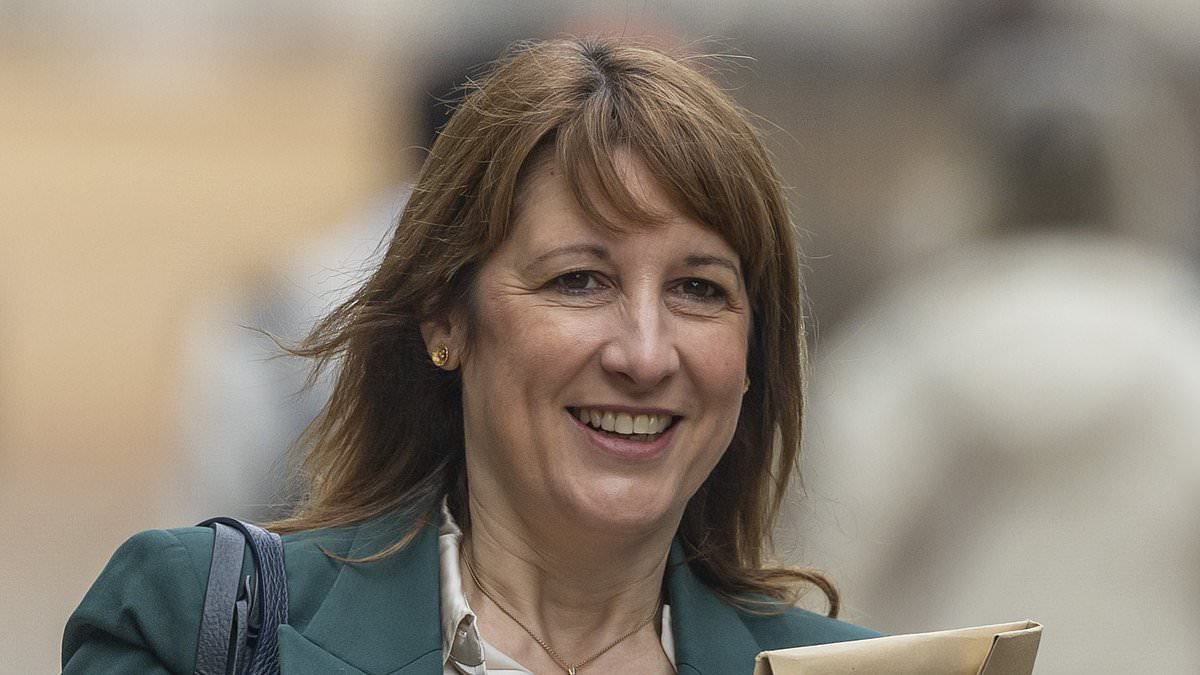Copyright dailymail

More than a million low paid workers could get a pay rise from the Chancellor in next month's budget triggering a backlash from business leaders. Rachel Reeves looks set to pile more pressure on already struggling businesses by upping the national living wage by an expected 4% despite stark warnings such a move could 'price jobs out of existence'. The move - expected to be announced when she delivers her Autumn Statement on November 26 - will see wages rise for those aged 21 and over from £12.21 to at least £12.70. In its efforts to deliver on its pledge to improve living standards, it is also believed the government will promise to extend the living wage to people between the ages of 18 and 21. Currently, this age group receive the lower national minimum wage. But for businesses already buckling under the double whammy of the introduction of a rise in the living wage and a hike in the employer's rate of national insurance just this April, it could prove too much. Economists have also warned the rises will have the opposite effect to that intended, instead damaging young people's prospects because employers won't be able to afford to take them on at all. Hospitality expert Kate Nicholls, head of the trade body UKHospitality, said more than 100,000 jobs had already been lost as 'a direct result' of the Chancellor's previous measures: She told The Times: 'Businesses are already struggling to absorb all the costs from last year, two successive years of significant minimum wage rises and crucially NICs [national insurance contributions]. 'If you want fair pay, you have got to have sustainable businesses. If you are pricing those jobs out of existence, it doesn't matter how high the minimum wage goes.' Meanwhile Sainsbury's chief executive Simon Roberts said shoppers were likely to see prices rise because supermarkets would be 'forced' to raise them if business costs rose. 'It's probably one of the most intensely competitive and low-margin industries in the world, somewhere between 3 per cent and 4 per cent margins,' he said. 'That's why we have to work really hard on our cost-saving programmes, because they're the things that we have to use to offset the impacts of inflation.' And John Foster from the CBI warned that pushing up the minimum wage risked undermining the growth he said was 'the only sustainable route to delivering real wage rises'. He said: 'Spiralling employment costs, particularly those resulting from higher taxes along with the unintended consequences of the Employment Rights Bill, risk diverting resources away from investment in innovation and training - the very things needed to boost the productivity growth that underpins sustainable wage increases.' The Resolution Foundation thinktank, which focuses on low pay, has also advised the government against another big rise for young people warning young people's employment prospects have worsened. Employers are already facing a major headache when statutory sick pay comes in from the very first day of an employee's job next April. Nevertheless Reeves looks certain to ignore business concerns as she seeks to fill a £25 billion hole in the public finances. Earlier this year, the Low Pay Commission, which advises the government, suggested that the living wage should rise from £12.21 to between £12.50 and £12.80. Supporters of the move say the minimum wage should rise to help people survive with rising costs. Paul Nowak, general secretary of the Trades Union Congress, said: 'Boosting the minimum wage isn't just good for worker - it's good for business too. When low-paid workers have more money in their pockets, they spend it locally - supporting shops, cafés and high streets.' In a budget likely to be dominated by tax rises, possible giveaways for some will include scrapping the two-child benefit cap, potentially funded by a tax on gambling companies, despite the unpopularity of the move with many which see it as a gateway for benefits to spiral again. In another blow to households, The Times reports that Reeves is also likely to shelve plans to scrap VAT on energy bills, which would have saved an average household £86 a year.



